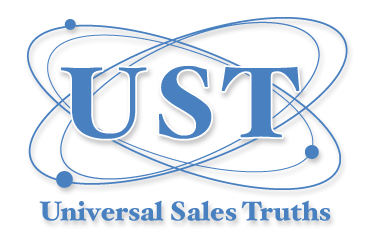While I was interviewing for a sales job in the computer leasing business, the hiring sales manager made a statement over lunch that I will never forget: “Your responsibility as a professional salesman is to be with the right company with the right product at the right time.”
That statement has had a tremendous impact on me to this day. If you take the time to reflect on it, the statement is obviously true, but do we all adhere to it? If, in fact, we make decisions to stay in sales long-term, shouldn’t we be aware of the changing markets in our industries and re-evaluate our current positions and opportunities?
Don’t misunderstand me. I am by no means advocating annual job changes. We have all seen sales reps who are constantly changing jobs, looking for the big hit. This is counterproductive and will ultimately be detrimental to your career. What I am saying, however, is that you should not place your head firmly in the sand and never evaluate other opportunities. Many sales execs get very comfortable and have blinders on, and convince themselves that they need to stay because they have been there for so long. Or perhaps they are simply scared of change.
There is certainly nothing wrong with loyalty. It is a good thing. We just need to be careful not to take it to the extreme. And, most importantly, do we really know if our company would show loyalty to us? Just because you have been a valuable employee for 15 years, do you honestly believe that your employer would retain you over a less costly sales rep if the company needed to downsize? When the rubber meets the road, corporate America will do what it needs to do to survive. And if it means taking out a number of long-term employees, you might be a casualty.
There is value in staying with the same company long-term. That is, as long as it is financially stable, continues to provide products and services that your clients purchase, and offers a compensation plan commensurate with your experience and business relationships.
A key question to ask yourself is this: Are your clients buying from you because you have a superior product or service, or are they buying primarily because of the relationship you have built over the years?
Also consider if you are losing ground to the competition. Is your competitor clearly offering a better alternative, and are you heavily leaning on your business relationships to continue to win business? It is your responsibility to monitor the market and industry to ensure that the product you represent remains competitive.
Think about it from another perspective. As a professional salesperson, you have spent many years earning trust and respect from your client base. They buy from you because they trust your recommendations and believe you will not steer them in the wrong direction. Perhaps in some cases they don’t spend a lot of time evaluating the competition because they trust you and your company’s product. You know your company is falling behind the competition, but you continue to do business because of the strong relationships you have built.
At some point, these clients will become aware that you and the company you represent have not kept pace with the industry. Or maybe they will find out that your product is overpriced. Regardless of the specific details, the fact is your client will feel that you took advantage of the business relationship. It will be hard to recover from this narrative, especially if your product is inferior and overpriced.
As a professional, you are supposed to have your clients’ best interests in mind. As a trusted advisor, you should not take advantage of a business relationship for selfish purposes. It takes years to build trust and respect. Unfortunately, it can be taken away in an instant. Protect this valuable commodity by monitoring the industry you sell in, as well as the competitive landscape. You want to be proud and confident of the product and company you represent. If anything changes, it is your responsibility to evaluate your options and determine which company and product will serve your client base the best. In other words, the client base is the constant; the company you represent may change based on new product offerings.
A decision to leave one company and move on to another should not be taken lightly. And it should never be done for money only. If you have an excellent reputation for representing a product in a given territory, you are in fact a valuable commodity to a competitor. You will most likely receive calls from executive recruiters or directly from competitors with job offers. They want you because of your experience and, most importantly, your strong client relationships.
Be mindful of the fact that a competitor may want to leverage your relationships for their benefit. Once your job is done, your compensation package might change significantly. Do your best to determine whether making a move is for all the right reasons. It should be a win-win for you and your new employer.
In my experience, the most successful sales execs blend loyalty and longevity with a solid company and products for their client base. Of course, this assumes that you consider sales a career and not simply a job!
UNIVERSAL SALES TRUTH #1
Surround yourself with successful people of integrity.
Proverbs 28:26
If you think you know it all, you’re a fool for sure;
real survivors learn wisdom from others.

